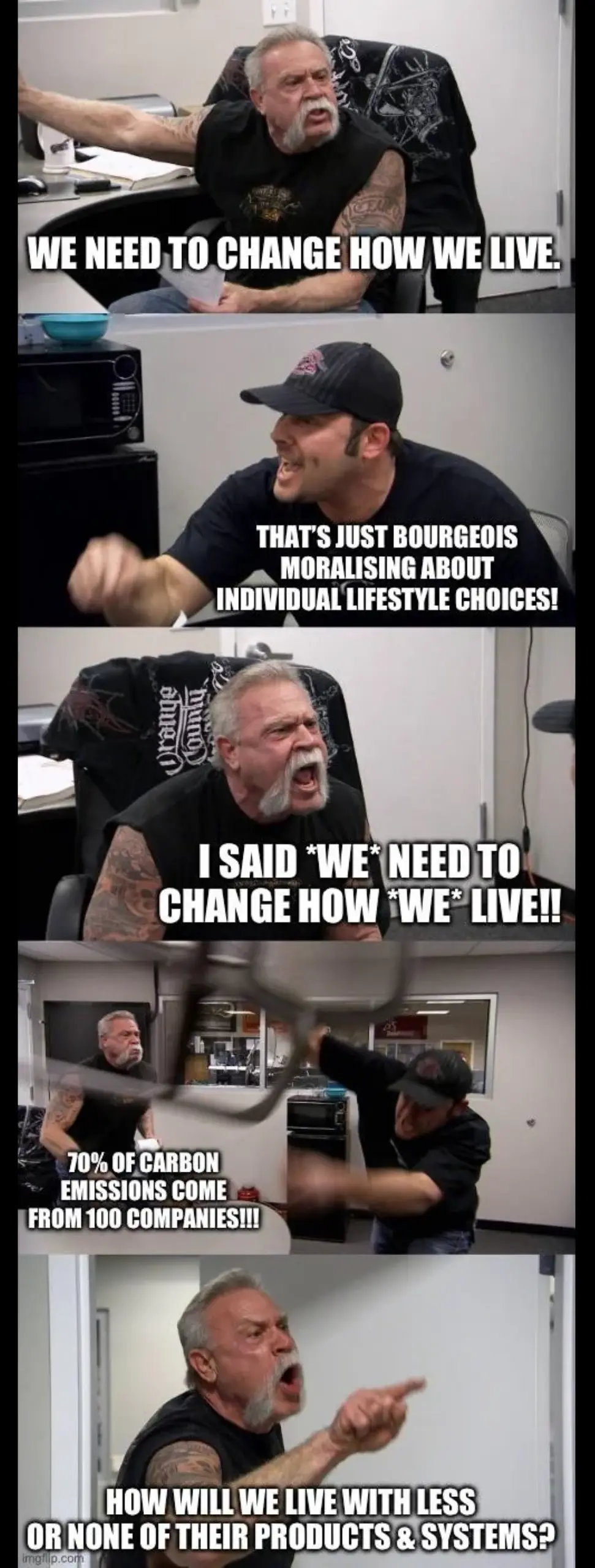Ugh I hate when I see that quote because it's made up and was never true. It was supposed to be around 100 companies are responsible for 70% of global emissions pertaining to fossil fuel and cement production, which accounts for ~10% of global emissions.
People love pointing the finger at someone else while pretending they have nothing to do with the problem. It's why I fear we're well on our way to extinction
